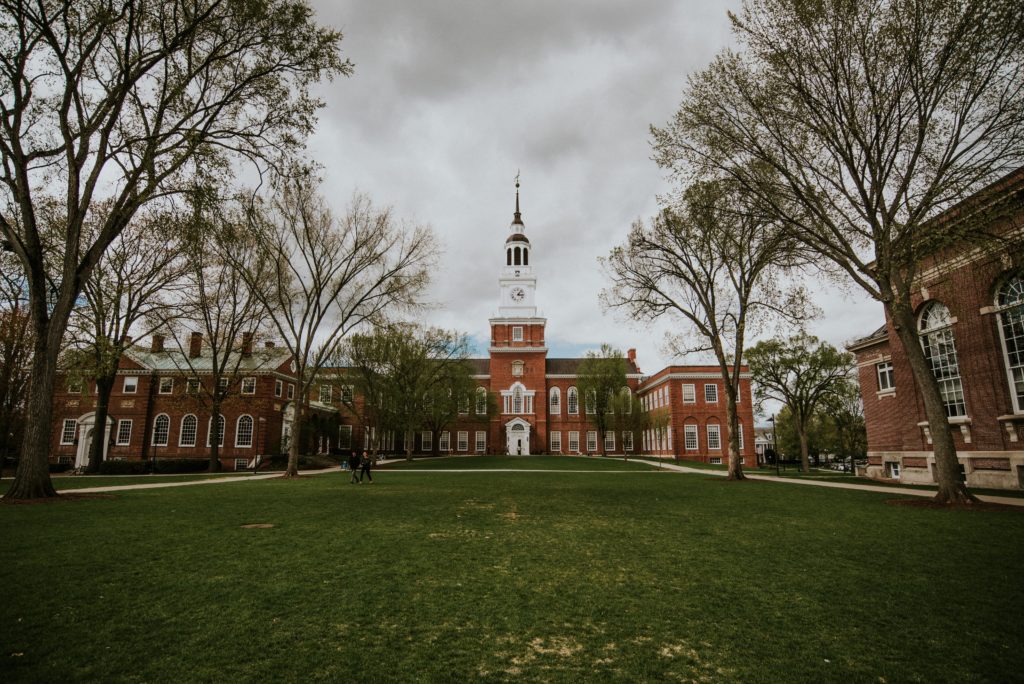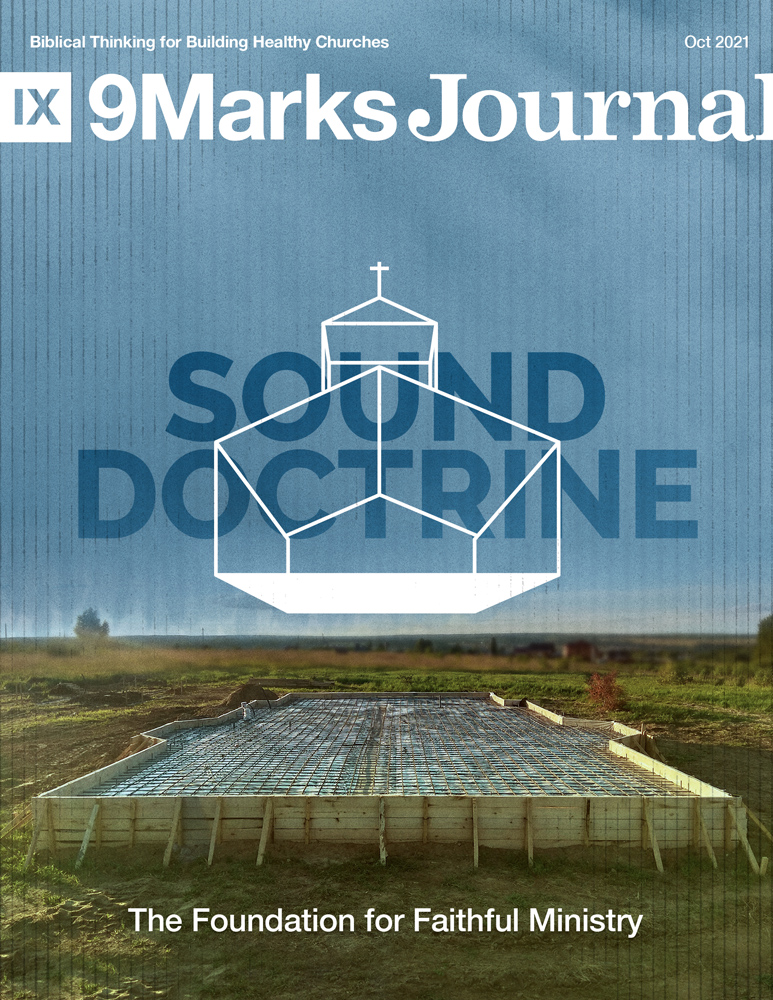Forum: Do Pastors Need a PhD?
November 16, 2021

November 16, 2021
We asked a few pastors and theologians a simple question, “Do pastors need to pursue a PhD? If so, why? if not, why not?” Below are a range of answers!
* * * * *
Why should a pastor do a PhD?
The first and most important reason is that a pastor must know the Bible, and if the Lord gives time and opportunity to study, knowing the Bible means learning Greek, Hebrew, and Aramaic to access the Bible in its original languages. We want to be as competent as possible in those languages so that we can go as deep as possible into the Scripture, and the amount of time given to language and exegesis courses in master’s degree programs is simply not enough. No one learns a language in a semester (or six). Languages take years to learn, and pursuing a PhD affords an opportunity to keep studying the text in the original language with a community of scholars devoted to the task.
PhDs are more about endurance than intelligence. This is not hard: the Bible is the Word of God. The Bible is the tool God uses to change lives by the power of the Holy Spirit as the gospel is preached. The Bible was written in Hebrew, Aramaic, and Greek. We should learn those languages. Don’t let all the other things you could read keep you from the Bible, and don’t let social media keep you from the languages.
It depends. I can speak from my own experience in saying that there are certainly many benefits that my PhD studies provided me personally.
First, as a biblical theology major, I will always be grateful for how my doctoral studies enabled me to develop skills in biblical languages and exegesis. I use all of the exegetical and language tools that were sharpened during the PhD every week in sermon preparation, in preaching, and in teaching.
Second, as a pastor in the Global South, doctoral studies provided me with the opportunity to serve both my local church and other churches in providing formal theological education to raise up pastors for our context. The PhD both sharpened my academic and pedagogical skills and provided me with credentials that have opened a host of opportunities to serve the local churches through theological education and writing.
Third, in nations like the UAE, where Christians are a minority and the church has significant interface with the State, a PhD provides helpful credentials to open doors for pastors.
However, if asked whether pastors should get PhDs, ordinarily, I would say, no. While I’m deeply grateful for the excellent training I received in my doctoral studies, I’m not convinced that for most pastors, pursuing a PhD is necessary. What’s necessary for pastoral ministry are the character qualifications of 1 Timothy 3 and Titus 1, the gift of being able to faithfully preach God’s Word, and the calling of the Holy Spirit expressed through the affirmation of a local church.
Research doctoral work demands a level of scholarly rigor, personal resilience, and financial investment well beyond what’s necessary for faithful ministry in the local church. The cost is significant emotionally and financially; it’s a lot for a family to bear. The trials of academic life can prove heavy and discouraging at times, even detrimental for someone whose primary passion and desire is to tend Christ’s sheep.
So, while I encourage those who have been blessed with the time, resources, and opportunity to pursue doctoral studies to do so in certain circumstances, I certainly do not consider PhD studies a necessity for men aspiring to pastor.
The operative word in the question is “need,” and the obvious answer is “no.”
A PhD may be sought for the wrong reasons: pride, self-ambition, status, and notoriety. You also may be in a place in your life where seeking a PhD is too much of a financial strain, and more importantly, it may take you away from your family when you need to be investing in the lives of your children and in your marriage. We need to beware of thinking that more credentials means we are better qualified.
But none of this means that a PhD is a liability or necessarily wrong! Getting a PhD may deepen and strengthen your ministry. Many PhD programs grant time for study and reflection on the Scriptures, theology, and the ministry. Further study can sharpen critical thinking and give pastors a depth and reserve from which they are able to minister and to feed the flock. Technical study should not be paraded in the pulpit and in other ministry settings, but such study gives us confidence that we are teaching adequately the whole counsel of God. Remarkably, thorough study can help us to be simple—not simplistic but simple, a simplicity and clarity that is on the other side of complexity.
What I got from my PhD has been immensely helpful to me in ministry for a couple reasons. But not for the reason you might expect.
I don’t believe the subject area expertise for my PhD, or most any PhD, is the best reason to get one if you want to be a pastor. Sure, my work in church history was certainly more relevant to my ministry than a PhD in economics or molecular biology. It’s helped me with wisdom from the past for what I’m facing now. It helps me not to overreact to whatever of-the-moment crisis seems so pressing.
But the reality is that I look at my shelves full of beloved books on American religious history as almost-sacred relics of a former life. I just don’t need to know as much as I know about that stuff to be faithful as a pastor. I’m sure the same goes for PhDs in Bible or theology, too. The more specialized knowledge we bring into our sermons or discipleship opportunities, the less likely those efforts will be terribly helpful to most people.
Far more than the subject expertise, I’m grateful for the skills training I got in grad school. I got to practice critical thinking. I got better at crafting and supporting an argument. I learned how to communicate in writing. In my training as a historian, I honed a skill I use every week in my preaching. The best work in history is always an exercise in empathy. You have to enter into the world of someone very different from you to understand where they’re coming from, then build a bridge into that world for someone else who’s not familiar with it. Sound familiar?
There’s one more benefit to my PhD experience that’s worth mentioning. I got my PhD from a secular university as a full-time student before I began my life as a pastor. I realize that’s not a typical career path. It’s not one I’d recommend to most folks under most circumstances. But in the Lord’s providence, in that context, I learned to understand and communicate with people from a vastly different intellectual world, with different plausibility structures, different ruling authorities, and different goals for life. I believe the Lord has used that experience to help me connect with people in the city-center context where I’ve pastored, surrounded by university students.
No, absolutely not. They must study their Bibles diligently so that they can rightly handle the word of truth (2 Tim. 2:15). They must learn the trustworthy word as the prophets and apostles taught it so that they may be able to give instruction in sound doctrine and also to rebuke those who contradict it (Titus 1:9; 2:1). They must meditate on God’s precepts day and night and understand his ways (Ps. 1:2; Ps. 119:15). Like their savior, they must rise morning by morning and turn to God’s Word in order to be taught (see Isa. 50:4; Luke 2:52). They must be trained in the words of the faith and of good doctrine, having nothing to do with irreverent, silly myths (1 Tim. 4:6–7). Of course they must know both God as well as what belongs to the hearts of men (Jer. 9:24; John 2:25). And if they do not have a faithful translation of the Bible in their language, they must learn a language that does. But, no, they don’t need a PhD.

The only way to defeat self-interested exegesis is to do better exegesis.
Go to Journal →